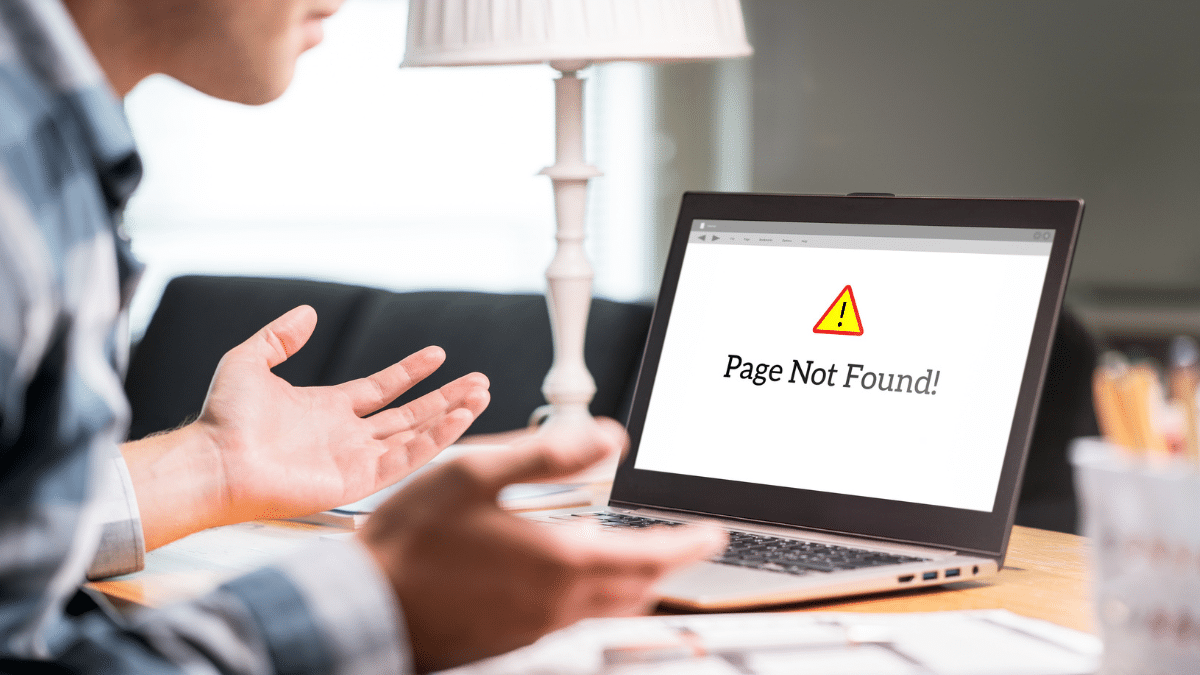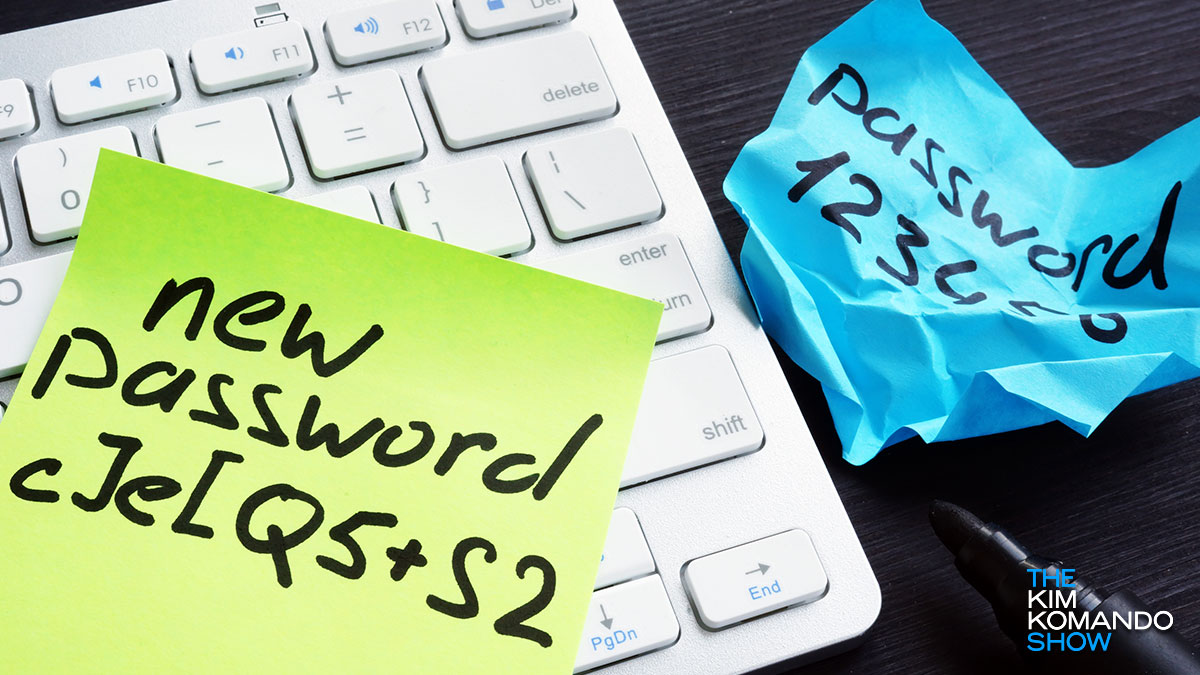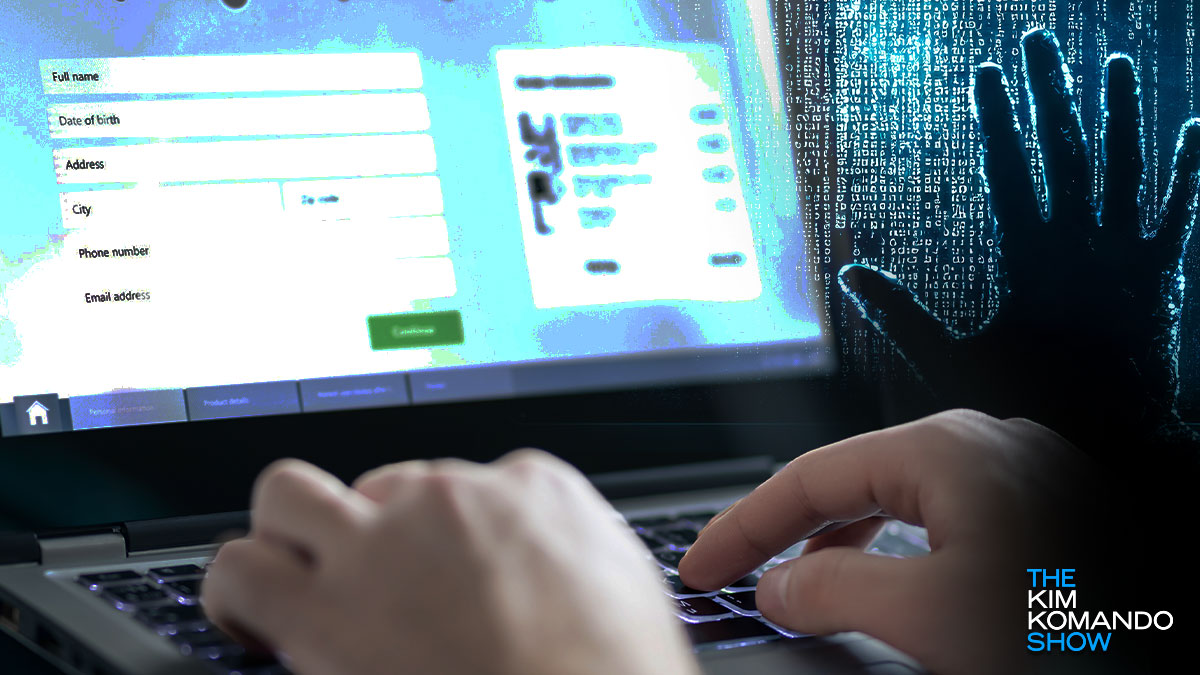Check your 401(k): A whopping one in five Americans has an inactive 401(k) account. The average value? $55,400! If you left a job and never dealt with your account, call your former human resources department and ask if you have an inactive account. You can also try this site.Stop hackers in their tracks: EndpointLock encrypts your keystrokes when you enter usernames, account numbers and passwords so no one can copy and steal them. It’s genius, really. Hit this link for 10% off.
How NASA plans to back up data on lunar soil

Let me ask you a question: Do you think the cloud is a safe place to back up your data, the world’s treasures and government secrets? In a world of increasing breaches, hackers and threats, even cloud storage might not be enough.
Welcome to the next frontier: Lunar backups. NASA is teaming up with Lonestar, a Florida-based startup, and the Isle of Man, that self-governing British Crown Dependency you might’ve never heard of, to store data on the moon. Think of it like the ultra-secure Fort Knox but for digital information.
🚀 Blockchain goes intergalactic
How do you keep data safe on the moon? By using a blockchain — the same tech behind crypto. It ensures data is secure, genuine and tamper-proof. This isn’t your mom’s filing cabinet; it’s out of this world.
The first data cube, “Freedom,” landed on the moon in February 2024, proving the concept works. Lonestar’s first commercial mission takes off in 2026. Oh, and the Isle of Man’s post office got in on the fun, too, sending digital stamps to the moon. Now that’s first-class mail.
🌝 Why the moon?
The moon isn’t becoming a storage locker for your embarrassing selfies. The mission is first to preserve humanity’s crown jewels — our most vital data. Think of it as Earth’s external hard drive or a modern Library of Alexandria (hopefully, with a less tragic end).
What’s on the moon-bound list? Obvious candidates include:
- Scientific research: DNA sequencing data, climate models and pandemic studies.
- Cultural archives: Literary classics, historical texts and digitized art collections.
- Financial records: Stock market data, transaction histories and economic models.
- Health care information: Genome mapping and medical research.
- National security data: Sensitive classified information.
- Tech blueprints: Designs for critical infrastructure, from power plants to the internet backbone.
- “The Kim Komando Show”: Audio files of all my shows, because they’re that important to all mankind. (OK, I made that up!)
🌎 Earth vs. the moon
Not everyone’s on board with storing data on the moon. It’s not like you can send a tech to fix things. And retrieving something? Think “break glass in case of emergency,” not your daily backup.
Accessing lunar data would take spacecraft, encryption and dealing with space itself. Long-term storage? Sure. Easy? Not at all.
Your IP address: What it is and why you need to protect yours if you care about privacy

Using the internet is a complicated affair. It may not feel like that to you as a user. You click on your browser and get on with your day — it’s as easy as pie.
Behind the scenes, though, is a whole different story. It’s full of numbers like your Internet Protocol (IP) address, basically your digital home address. This numeric label distinguishes your phone or computer from other devices worldwide.
Got a new tech gift? Secure it
Don’t let hackers ruin your holiday. Follow these three simple steps to protect your gadgets and your data.
🇨🇳 It never stops: The Communist China hackers who stole unofficial government docs last month had another target: The Committee on Foreign Investment in the U.S. (CFIUS). This group approves business deals and decides what’s a national security risk. The feds say there’s no proof other agencies got hit … that they know of. China denies everything.
Small-biz tip: Don't overlook this digital danger

Are you the type of business owner who forgets about ex-employees as soon as they’re gone? Failing to remove former employees’ access to your systems and data could lead to security breaches. Don’t let poor offboarding practices be the weak link in your cybersecurity chain.
Why you can’t access some sites while you’re on a VPN and what to do

Let’s say you’re browsing the web with a VPN. You’re protecting privacy, so you’re confident hackers and advertisers can’t track you. Then you try to go to a site, and it just won’t load.
This can throw a wrench into productivity when working. Or it can ruin your mood when trying to have fun online.
Gravy train derailed: Hackers breached data broker Gravy Analytics and got their hands on the location info of millions of people. They also named companies who bought their data, like Uber, Comcast, Apple and Equifax. Last month, the FTC went after Gravy for selling sensitive location data. This is why I use Incogni. They remove you from databases like this.
Please stop: On Reddit, you can opt out of political and religious ads. Log in from the app or your desktop, then head to this preferences page.
Hackers and scammers don’t want you to use EndpointLock: It stops them from capturing your keystrokes when you enter your user names, account numbers and passwords. If you bank on your phone or do anything else confidential, you need this. Hit this link for 10% off.
🏥 1 million Americans exposed: Hackers got private communications between doctors and patients using ConnectOnCall. The breach includes names, health conditions, treatments, medications, Social Security numbers and more. If your name’s on the list, look for a letter in the mail.
Chinese hackers hit U.S. telecoms: What you need to know
A cyberattack exposed data, and it’s still happening. The government says to use encrypted messaging — but what does that mean? I’ll tell you in this short podcast.
Ascension Healthcare hack: We now know how big the May cyberattack really was. Hackers grabbed medical records, payment info, insurance details, IDs and addresses of 5.6 million people. If this breach affects you, watch for a letter via USPS mail. Either way, freeze your credit and get yourself off the Dark Web.
🚨 North Korean hackers are targeting Macs: It starts with an email containing a fake crypto news headline (e.g., “Hidden Risk Behind New Surge of Bitcoin Price”) and includes a link, supposedly to a PDF. The link actually leads to a malicious app that lets the sender take control of your system. If you’ve clicked on a random PDF link recently, scan for malware ASAP. I use TotalAV.
Never trust a cable that’s not yours: Hackers are leaving ordinary-looking charging cables lying around. Find one and plug it into a computer to charge your phone, and it’ll install malware or steal your data. These cables are fully functional, too. If you’re traveling, get a USB data blocker (4-pack for $10.99; be sure to click the $2 off coupon). It acts as a protective barrier between the cable and your devices.
We may earn a commission from purchases, but our recommendations are always objective.
Stop texting? Not so fast
iPhone-to-Android texting: are Chinese hackers really a threat? Here’s the truth behind the FBI’s warning and what it means for your messages.
You should stop texting ASAP
The FBI warns: Stop texting and use encrypted apps. A Chinese hack hit over a million Americans, with hackers reading texts and listening to calls. Also, Walmart buys Vizio, an update on Hannah Kobayashi, and Amazon’s Garage delivery service.
Easy way to find and delete accounts
Can you remember every account you’ve ever created? Hackers rely on you forgetting and take advantage of old, unused accounts for their schemes.
These passwords take 1 second to crack

Here’s a wild stat: 78% of the world’s most common passwords can be cracked in less than a second. The most-used password in the world, “123456,” has been leaked more than 3 million times. And get this: 1.2 million of those were corporate passwords.
How to remove personal data from data-broker sites (Spoiler: I use Incogni)

I’ll never forget when my son, Ian, asked me where in Los Angeles I lived. I told him I couldn’t remember — it was 30 years ago, and I lived there for maybe six months. A few minutes later, he called and had the address. It was available for free to anyone on the internet on an online people search directory.
November 9th, 2024
China’s hacks on AT&T and Verizon? Worse than we thought — hackers may have call logs and texts from everyday Americans. Plus, ‘designer babies,’ the world’s biggest data broker, and a caller’s Tinder date from hell that nearly turned deadly.